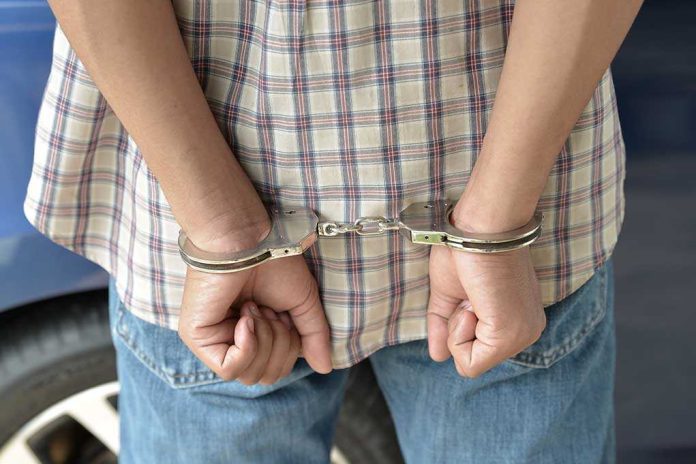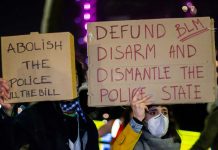
When a synagogue filled with worshippers is set ablaze and a Jewish restaurant is stormed by masked extremists in supposedly “tolerant” Melbourne, Australia, you have to wonder: how much longer will Western societies twist themselves into knots pretending that this wave of hate is just some passing “protest”?
At a Glance
- Melbourne’s Jewish community targeted in coordinated antisemitic attacks—synagogue arson and restaurant raid—on July 4, 2025.
- Authorities arrested one suspect for synagogue arson; police still investigating whether it was terrorism-related.
- Victorian government officials and Jewish advocacy groups condemn the violence and demand a stronger response.
- Jewish families report heightened fear, while critics say government leniency is emboldening extremists.
Coordinated Attacks Strike at Heart of Melbourne’s Jewish Community
On July 4, 2025, Melbourne’s Jewish community found itself under siege. As twenty worshippers gathered for Shabbat dinner at the historic East Melbourne Hebrew Congregation, an arsonist set the synagogue’s front doors alight. Miraculously, everyone inside escaped unharmed. Yet the symbolism could not be more chilling: a house of faith, deliberately targeted, flames licking the entrance as families huddled inside. This was not a random act. Just hours later, a mob of about twenty masked individuals stormed the Israeli-owned Miznon restaurant, hurling chairs and glassware, chanting “death to the IDF,” and sending terrified patrons fleeing into the night. The message was unmistakable—Jewish spaces in Melbourne are no longer safe from hate-fueled violence.
Victoria Police moved quickly, arresting a 34-year-old man from New South Wales in the city’s central business district the following evening. He now faces charges including reckless conduct endangering life, criminal damage by fire, and possession of a controlled weapon. Police are still investigating whether the attack will be classified as an act of terrorism. Meanwhile, another protester from the restaurant attack was arrested but subsequently released with a summons. As usual, the authorities promise a thorough investigation. But for many local families, these assurances ring increasingly hollow.
Rising Antisemitism and Calls for Action
These attacks are not isolated incidents. According to the Executive Council of Australian Jewry, there have been over 2,000 antisemitic incidents in Australia since October 2023. The trauma is compounded by memories of the unsolved 2024 firebombing of the Adas Israel Synagogue, also in Melbourne. Jewish business owners and community leaders are calling for robust government intervention and real consequences for offenders. Victoria Premier Jacinta Allan joined other officials in condemning the violence, describing the attacks as “deliberate attempts to traumatize Jewish families.” Still, critics say the current government response amounts to little more than stern words and vague promises—exactly the kind of weakness that emboldens extremists.
Community advocates like Alex Ryvchin of the ECAJ are demanding bipartisan condemnation and the “full force of the law” for perpetrators. International voices, including Israeli Foreign Minister Gideon Sa’ar, are now pressuring Australia to “do more” to combat what has become a sickeningly regular occurrence. The Australian Anti-Defamation Commission has also weighed in, warning that appeasement only feeds the ideological fires driving these attacks. Yet as police tiptoe around the “motivation” of the arsonist and officials wring their hands about “social cohesion,” Melbourne’s Jewish families are left wondering: whose side is the government really on?
Fear, Division, and the Cost of Government Inertia
The immediate aftermath is predictable—rising fear, calls for more security, and a government scrambling to control the narrative. Yet the long-term implications are even more troubling. Each unanswered attack chips away at the fragile trust between communities, normalizing hatred and leaving minorities to fend for themselves. Business owners face economic harm, religious institutions must now operate like fortified bunkers, and ordinary families debate whether it’s safe to gather for worship. The cost—social, political, and economic—falls squarely on the shoulders of law-abiding citizens, while extremists test the limits of a system that seems more interested in avoiding “offense” than defending its own people.
Advocates warn that unless authorities get serious—enacting stronger laws, actually enforcing them, and sending an unmistakable message that antisemitism will not be tolerated—these attacks will only escalate. The precedent is already set: leniency breeds boldness, and hesitation signals opportunity. Melbourne’s Jewish community, like so many others in the West, is learning the hard way what happens when a government’s priorities become so warped that it forgets its most basic duty—to protect its citizens from hate, violence, and the mob.
Sources:
JNS.org: Arrest and charges in synagogue arson, details of restaurant attack
CBS News: Incident details, official statements, and context
ECAJ: Antisemitic incident statistics and advocacy positions









